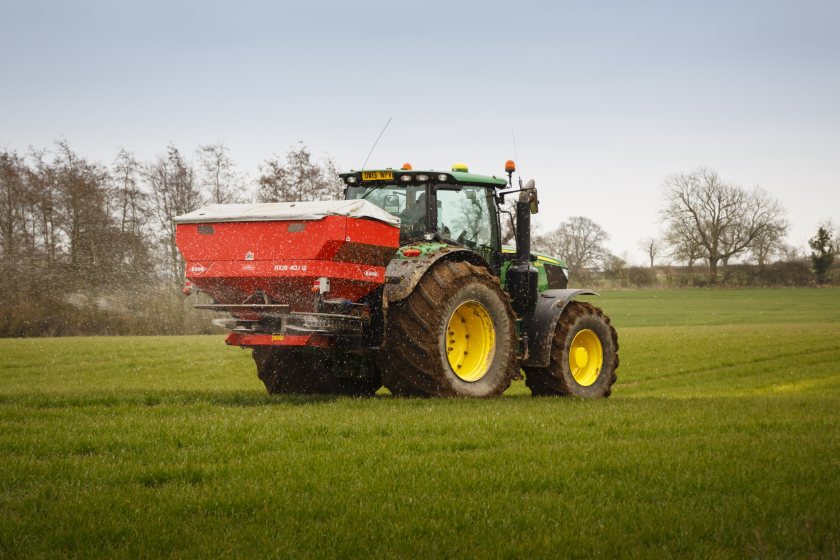Farmers told to act as Lords demand crackdown on nitrogen pollution

Farmers are being urged to adopt smarter nitrate practices as part of a wider call from the House of Lords to overhaul how the UK manages nitrogen across agriculture, wastewater, transport and industry.
In a new report titled “Nitrogen: time to reduce, recycle, reuse”, the Environment and Climate Change Committee is calling on the government to take a more ambitious, strategic and joined-up approach to managing nitrogen.
The element is essential for plant growth but, when mismanaged, poses serious risks to public health, ecosystems and air and water quality, the report says.
Agriculture is highlighted as one of the primary contributors to nitrogen pollution in England, alongside wastewater and transport.
The Committee recommends an urgent shift towards a circular model of nitrogen management, which includes reducing nitrogen inputs such as fertilisers, improving how nitrogen is used on farms, and increasing the recovery and reuse of nitrogen from waste streams like slurry and manure.
“Nitrogen is an essential chemical element for all living things. It constitutes 80 percent of the air we breathe," said Baroness Sheehan, chair of the Committee.
"However, when nitrogen combines with other elements it can form dangerous and deadly pollutants that affect air quality, contributing to tens of thousands of premature deaths per year and damages and kills aquatic life, precious habitats, plants and wildlife. The associated economic, social and environmental costs are immense."
The Committee’s report warns that a lack of cross-departmental coordination has led to missed opportunities to align nitrogen management with wider government priorities, including net-zero goals, flood prevention and biodiversity recovery.
For the agricultural sector, the Committee recommends prioritising practical, near-term measures that can deliver immediate reductions in nitrogen emissions.
This includes requiring all slurry stores to be covered and mandating the use of low-emission spreading techniques by 2027.
Farmers should also be encouraged to improve nitrogen efficiency through regular soil testing and by adopting best practice in fertiliser use.
In addition, the report calls for greater support to expand the use of nutrient recovery technologies, which can help capture and reuse nitrogen from organic waste such as slurry and manure, turning a pollutant into a valuable resource.
To ensure these improvements are effectively implemented, the Committee urges the government to strengthen existing regulations and clarify the distinction between what constitutes mandatory action and what is considered advisory guidance within current farming legislation.
“It is an essential priority to quantify the major flows, sources, and sinks of nitrogen and minimise nitrogen pollution by capturing and re-using pollutants, turning them from damaging waste into a valuable resource,” added Baroness Sheehan.
The report makes the case for a UK Nitrogen Strategy to unify government efforts, supported by tougher enforcement and clearer responsibilities, especially in areas like wastewater management and on-farm compliance.
For transport and industry, the Committee recommends that the updated Clean Air Strategy be backed by a fully funded, accountable plan, with improved monitoring and coordination with local authorities.
“We are therefore calling on the government to take a more strategic, holistic and innovative approach to nitrogen management," said Baroness Sheehan.
“Our report also identifies low-hanging measures to reduce deadly nitrogen pollution which we urge the government to act on immediately.”








